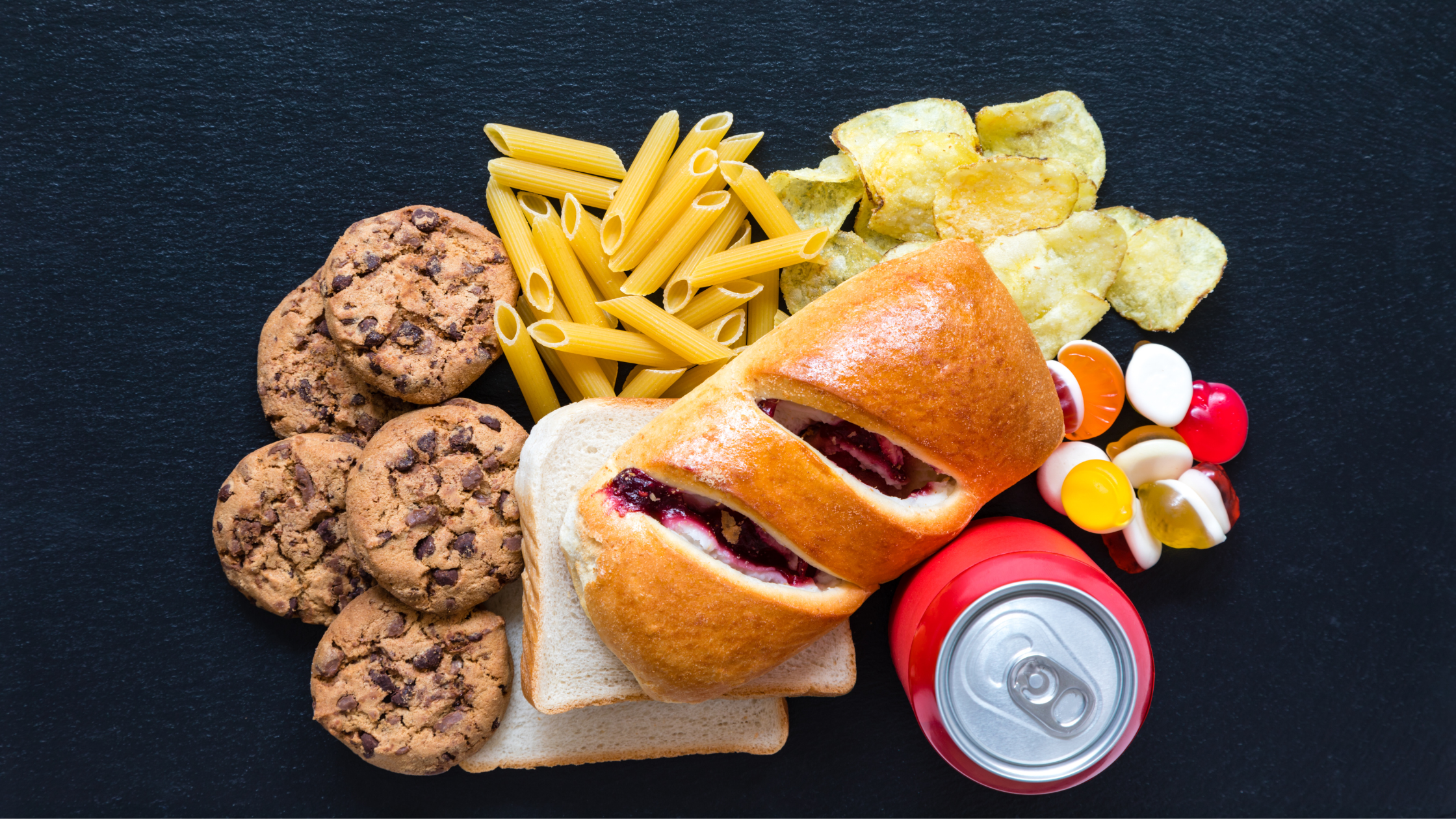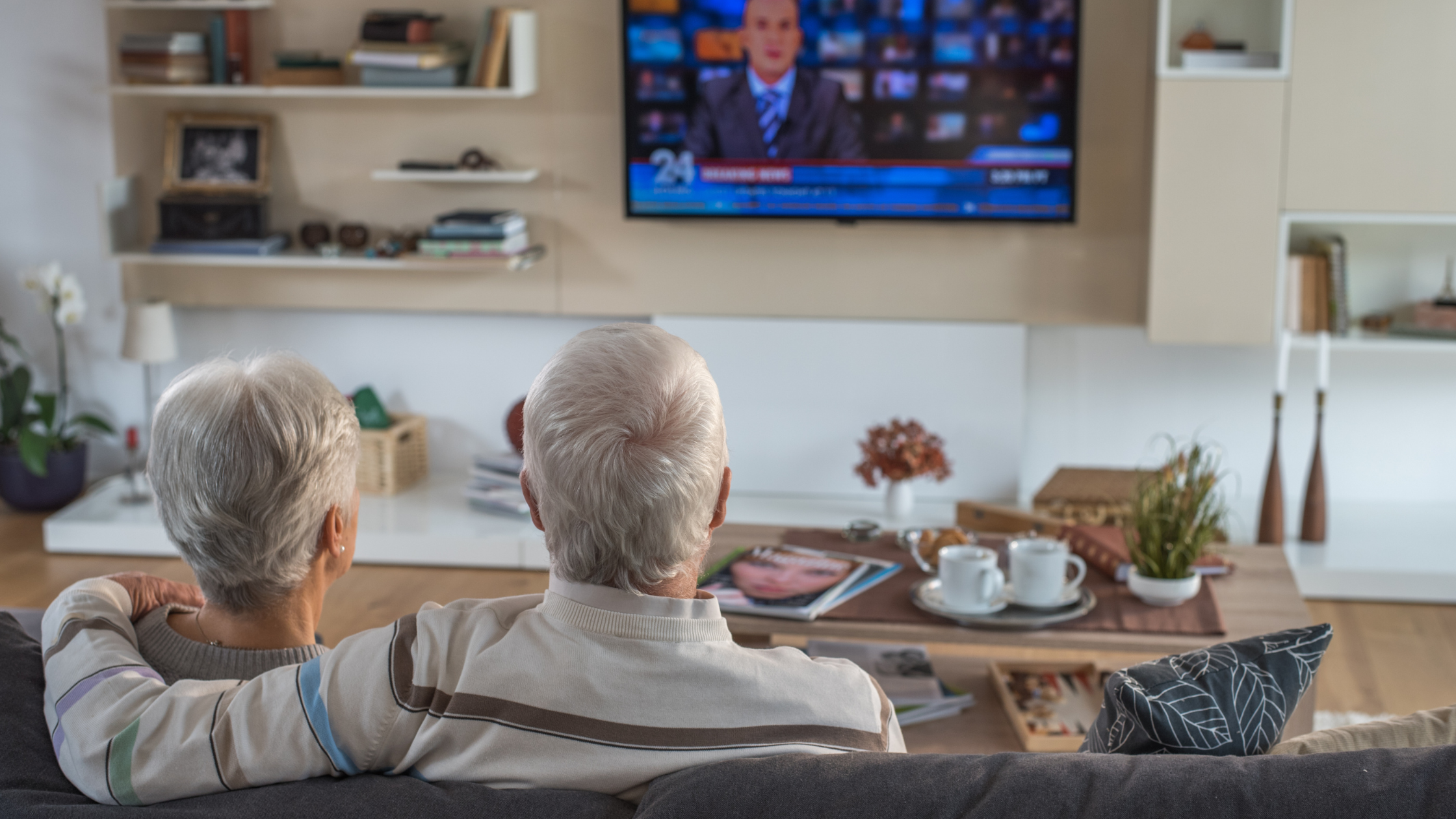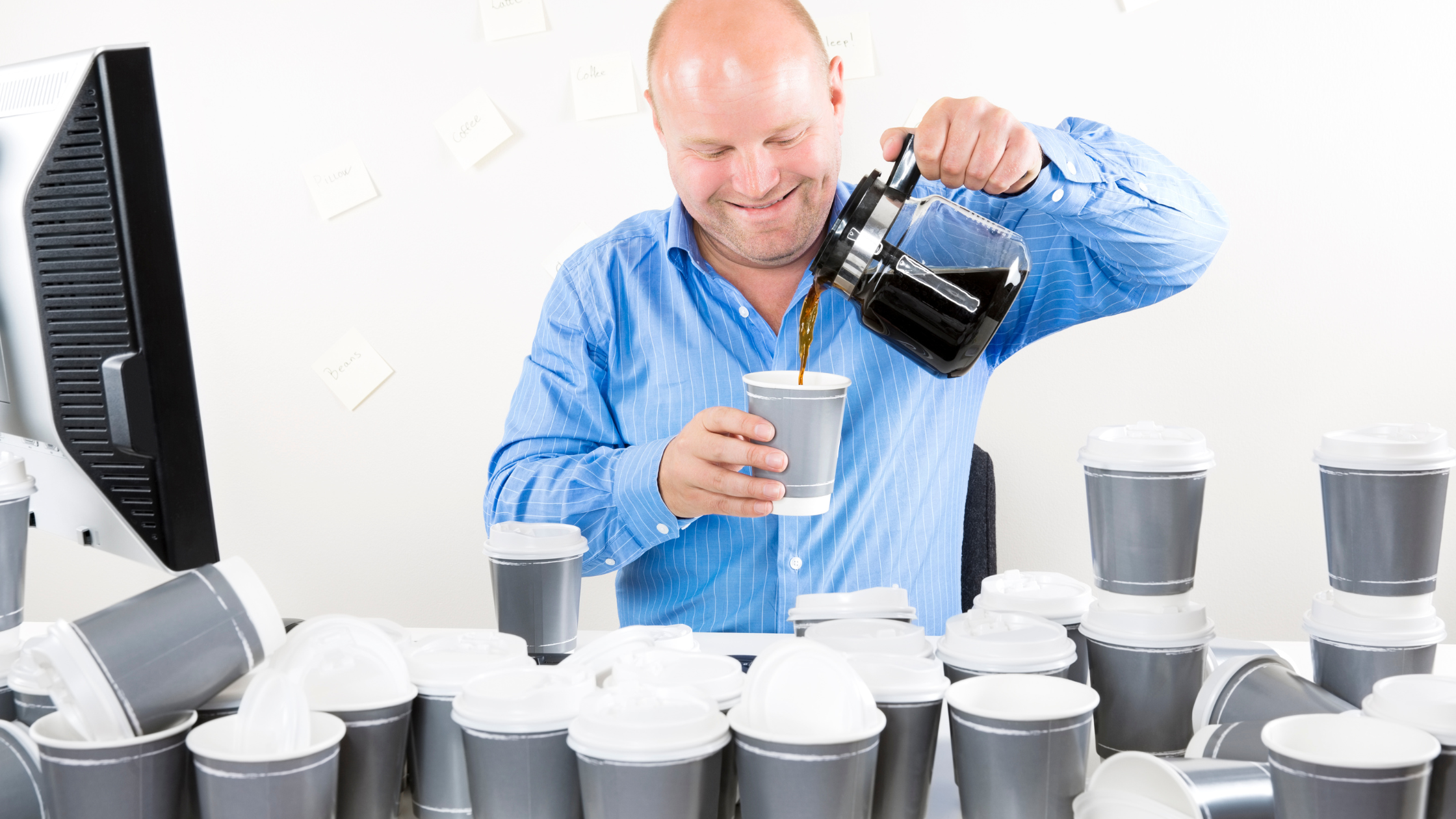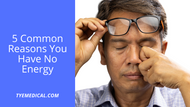5 Common Reasons You Have No Energy
Written by TYE Medical on Jun 26th 2024
It seems everyone is tired. While we could speculate about all the reasons why, it's apparent that most of us could use a dose of additional energy. It’s not unusual to hit the snooze button or feel the post-lunch slump.
But if you regularly say, “I have no energy,” it could be time to take a look at why.
If you don’t have underlying health conditions that correlate with lacking energy and are getting enough sleep most nights, something in your daily routine could be the culprit. Consider these five nine changeable habits that can wreak havoc on your energy levels.
1. Too Much Sugar Drains Energy

The candy jar isn’t the only sugar source to avoid. It can be easy to forget about refined carbohydrates like rice, white bread, chips, and cereals. But your body quickly transforms these refined carbs into sugars. This is why both sugary foods and simple carbs spike your blood sugar. You may experience a brief time of energy and focus after eating them, but the boost doesn’t last long.
Because blood-sugar levels surge quickly, they also fall quickly. This is known as a “sugar crash”. The crash makes you feel tired, drained, and even irritable. If you experience this cycle several times a day, you often will feel like you have no energy.
You don’t have to give up all your sweet or carby treats. Many people can have them in moderation. But be sure to limit them and eat balanced meals or snacks, including lean protein and healthy fats alongside some simple carbs or sugars.
2. Not Getting Enough Exercise Increases Fatigue

While it’s not intuitive, your body needs to burn energy to create energy. The right amount of exercise boosts overall energy and improves sleep. Better rest and the energy rev you get from exercise can make you noticeably less drained.
When you feel wiped out, take a five-minute walk outside. The outdoor air and energy expenditure can give you the bump you need to overcome that drowsy and tired feeling. But be sure to fit regular exercise time into your daily routine. Find something active that you enjoy. The key to get your heart rate up, strengthen your muscles, and stay limber.
3. Skipping Breakfast Limits Energy

If food is fuel, starting your day without it after a night of fasting will typically make you feel like you have no energy. Start your day with a healthy breakfast instead of letting it run on “E” until lunchtime.
And you’re more likely to regret your food choices if you come to lunch famished and ready to eat anything. It’s easier to maintain self-control and make wise choices when you’re hungry but “starving”.
Be sure your breakfast includes healthy carbs, like fruit or lightly sweetened oatmeal and lean protein like eggs, dairy, or nuts. This will help you prevent a sugar crash and carry you closer to lunch.
4. Sitting Too Much Makes You Tired

You’ve probably heard that prolonged sitting is unhealthy, but it also saps your energy. Standing up or moving for just a few minutes is enough to increase oxygen and blood flow. This improves your alertness, memory, and mood.
Work a desk job? Make it a goal to get outside for a brief time daily. Research indicates that being out in nature boosts energy. It’s called “nature therapy”.
5. Too Much Caffeine Makes You Tired

It’s easy to overdose on caffeine. Just remember it’s more than just your morning coffee. Also consider the sodas and energy drinks you consume in a day.
Caffeine is a stimulant that provides a quick jolt and an equally quick crash if you consume too much. The crash period not only makes you fatigued but also makes you irritable and can disrupt your concentration.
Be careful with caffeine, because your body builds up a tolerance to it. This means you’ll need to consume more to feel the same up-lifting effects you enjoy. And yet, the more you have the more likely you are to crash.
According to the FDA, up to 400 mg of caffeine per day is a safe amount for healthy adults, which is about four 8 oz coffees. This is a guideline and doesn’t mean it’s recommended to consume this upper limit. For most people, it wouldn’t be unsafe. But keep in mind that everyone is different, and you might experience a crash after two cups of coffee if that is above your personal caffeine limit.
Lifestyle Habits Can Affect Your Energy
Before you become anxious or concerned about your dropping energy levels, make some adjustments in your routine and lifestyle. You may notice energizing improvements if you reduce sugar, exercise more, eat a balanced breakfast, move more during the day, and reduce caffeine. These changes will also help you sleep better and night, which will only add to the energy boost you need.
If your fatigue and low-energy feelings are severe or limiting your daily life, be sure to talk to a doctor to rule out underlying conditions that could be more serious.


